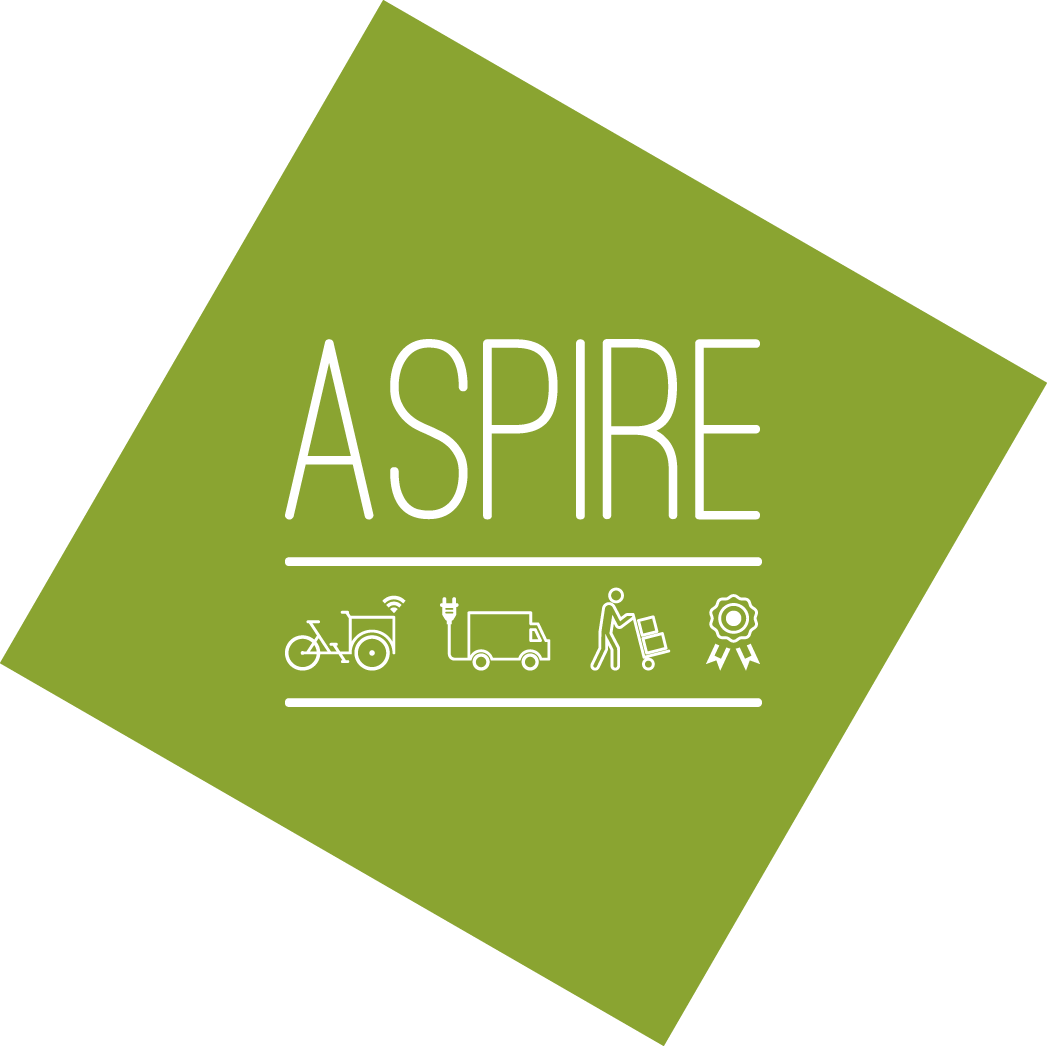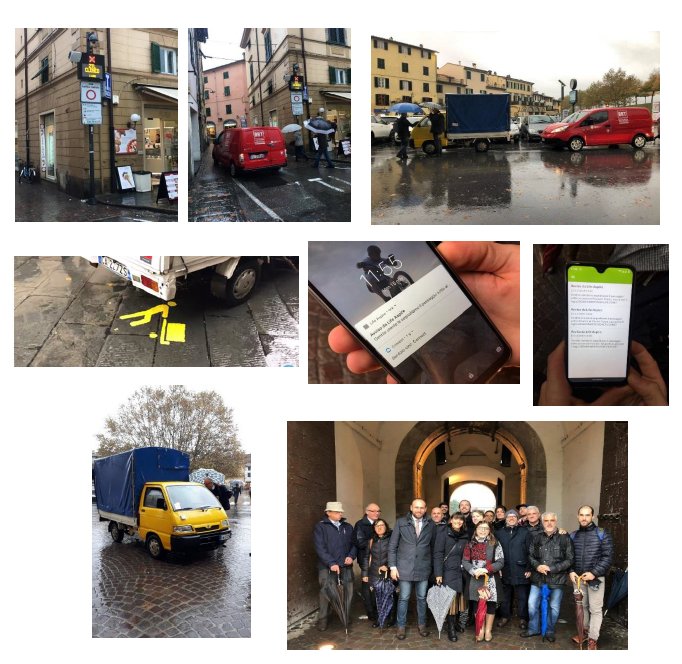Two busy days for the LIFE ASPIRE consortium.
On the last 14th of November, the seventh Consortium Meeting in Livorno hosted by MemEx to discuss the progress and the plan of actions for the following months.
On the 15th of November, the second meeting of LIFE ASPIRE Technical and Scientific Committee hosted in Lucca by the City of Lucca (project coordinator) and the onsite visit to LIFE ASPIRE technologies. The working day was closed with a short greeting from Mayor Alessandro Tambellini.
Gabriele Bove, Lucca City councillor for mobility and innovation and the Italian technical partners (LUCENSE, MemEx and Kiunsys/Municipia) conducted the Ccommitee members and the partners from the cities of Zadar and Stockholm to the visit on the demonstration site, despite the heavy rain.
The onsite visit allowed the participants to see:
– two of the twenty-two RFID gates installed at the RTZ border. Two vehicles, equipped with the “Lucca mobility pass” (containing an RFID tag), passed through the access and exit RFID gates. The passage of the vehicles was recorded by the antenna and sent in real time to the LIFE ASPIRE App. The participants could observe the notification of the passages on a mobile phone.
– one of the thirty-four load/unload bays equipped with parking sensors (under the road surface). A vehicle was parked on the bay and the sensor, in real time, detected its presence sending the notification (occupied bay) to the App.
The practical demonstration took advantage of the kind availability of two logistics operators, which actively participated to the working groups managed by the City of Lucca during the last months.
In the following months, three cargo-bike sharing stations will be installed to complete the LIFE ASPIRE demo site in the historic centre of Lucca.
The visit has allowed seeing preview what will be the real demo activity of the project.
During the demo phase, that will start by the end of 2019, the City of Lucca will implement and test an integrated set of interventions aimed at transforming urban freights transport into an increasingly virtuous and eco-sustainable system.
The foreseen set of measures are: the introduction of a rewarding system scoring sustainability through the attribution of the so called “eco points”; the modification of load/unload bays in the city centre, the installation of three cargo-bike sharing system and of a system of RFID gates that will allow to monitor both access and exit to/from the RTZ.
Overall, the main innovation is the introduction of a “rewarding system”, to evaluate and reward the logistics operators delivering freights in the historic centre in a more sustainable manner but, also, to encourage other operators to improve their behaviour in this direction.
LIFE ASPIRE approach has been already included in all City strategic planning instruments such as the Sustainable Urban Mobility Plan, the Urban Traffic Plan and the Mobility and Parking Implementation Plan for the historic centre, but positive results of LIFE ASPIRE demonstration phase, should pave the way for future integration and widening of such rewarding system.

